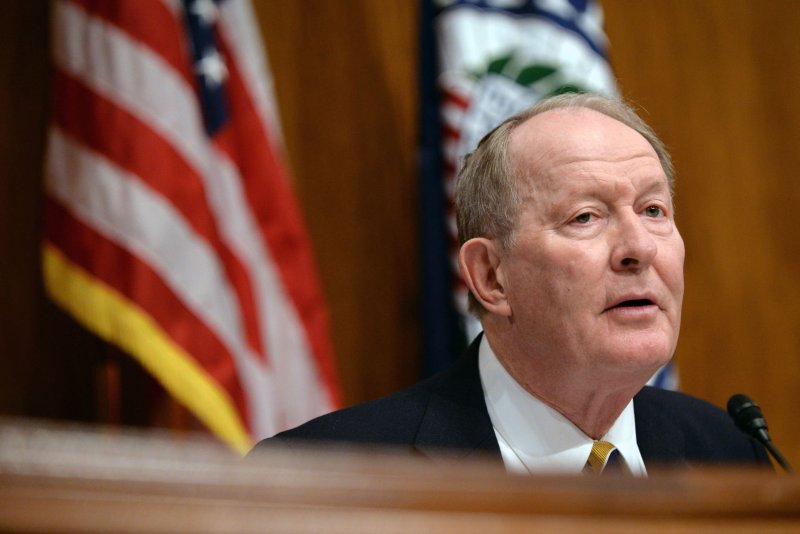Sen. Lamar Alexander, R-Tenn, attends a Senate Health, Education, Labor and Pensions Committee hearing on raising the minimum wage on Capitol Hill on March 12, 2014. Thursday, Alexander was one of two senators who helped usher through a revision of the No Child Left Behind act. File Photo by Kevin Dietsch/UPI |
License Photo
WASHINGTON, July 17 (UPI) -- The Senate passed a bipartisan revision of No Child Left Behind that will shrink the federal government's role in K-12 education policy, transferring greater decision-making powers to state and local authorities.
The measure passed Thursday 81 to 17, just weeks after the House narrowly passed its own version, marking an unusual level of agreement on Capitol Hill. The Senate's bill, Every Child Achieves Act, keeps much-maligned standardized testing but allows states more leeway to judge student achievement and school performance. The Senate bill must be reconciled with the House bill, which passed 218 to 213 with almost no Democratic backing, before heading to President Obama's desk for a final decision. Leaders from both sides say they can come to an agreement before then.
"There are some important differences, and we'll have to work this out," Sen. Lamar Alexander, R-Tenn., chairman of the Senate Education Committee, said on the Senate floor Thursday. "I believe the president also sees the need to fix No Child Left Behind. He knows that there is confusion and anxiety in most of our 100,000 public schools that needs to be settled."
The White House has already vowed to veto the House bill and does not see the Senate's efforts as going far enough.
"The president has made clear he can only sign a bill into law that strengthens the accountability measures and that addresses inequality, where some schools are unable to offer the same opportunities as other schools do," Washington Sen. Patty Murray, the ranking Democrat on the committee, said on the Senate floor. " I agree this is a must," he added.
The Senate version maintains the federal mandate of reading, math and science testing in grades 3 through 12, but allows states to decide how they will use those scores. The Senate bill would require that states continue using testing as a significant accountability factor, while the House measure does not.
The House bill would permit low-income students to transfer federal dollars between districts, something that has become a central point of disagreement for fear it will drain funds from needy school districts.
Civil-rights groups said some Senate provisions give states free reign to ignore disadvantaged kids and undermines the original federal education law in 1965.
"It's simply unfathomable that 50 years after its passage, Congress would consider gutting its primary purpose: to ensure that those who are serving our children are doing so on an equitable basis," said Leslie Proll, director of the Washington, D.C., office of the NAACP Legal Defense and Educational Fund. "Yes, transparency and data are good, but information alone without requiring specific action for addressing disparity does great damage."
The House version also allows parents to opt out of federal testing requirements and Common Core, a move widely supported by Republicans.
The House bill caps annual spending, while the Senate bill remains mum on the issue, leaving the crucial decision for committee debate. The House version does not include provisions that require states to match some levels of federal funding, allowing for the possibility that some states and localities will cut education funding in some areas and replace it with federal funding.
The House bill eliminates dedicated funding for school improvements and would eliminate almost 70 federal education programs and replace them with grant availability to allow states to create their own education agenda.
The Senate version adds new programs, including early-education programs, and eliminates or consolidates others.
No Child Left Behind was signed into law in 2002 under President George W. Bush and was due for reauthorization in 2007.















